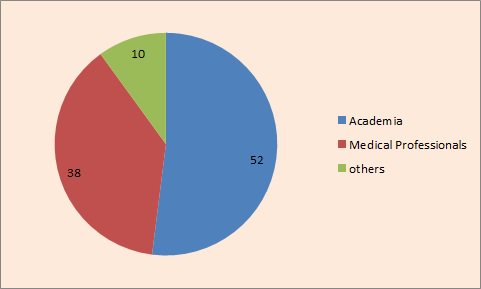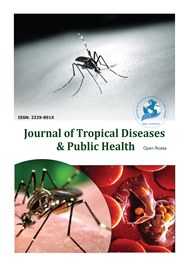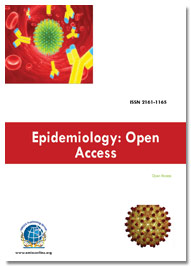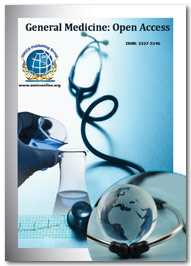Theme: Discovering & Promoting Solutions to Global Health
Epidemiology Congress-2018
About the Conference
Hear Explore and learn the latest research. Present before a distinguished global audience. Collaborate, build partnerships and experience USA. Join the global academic community.
Welcome to the Epidemiology Congress 2018!
We are pleased to invite all to attend the “9th International Conference on Epidemiology and Public Health” which will be held during October 17-18, 2018 in Las Vegas, USA
The conference will bring together healthcare professionals across all fields related to epidemiology career and public health practitioner globally. This includes but is not limited to epidemiologists, veterinarians, microbiologists, clinicians, public health professionals, communication specialists, statisticians, social scientist environmental health experts business professionals, foundation leaders, direct service providers, policymakers, researchers, academicians, advocates policy makers and others. Epidemiology Conference Google analytics clearly reflects the interests of the global enthusiastic conference attendees like Epidemiologists, Public Health Researchers, Academicians, Practitioners, Early Career Scholars, students along with Industries, Organizations and other key stake holders from Healthcare and Medicine space who are searching to attend and present/exhibit their research/organization.The audience also includes representatives from National Public Health Institutes, members of Surveillance and disease-specific networks, and governmental, non-governmental and academic researchers from across Europe and the globe.
Epidemiology 2018 conference also covers broad subject matter expertise in healthcare epidemiology, long-term care, research methods, clinical microbiology, patient safety and quality, implementation science, and networking and communication.
Benefits of Attending:
- Exchange ideas and network with leading epidemiologists, veterinarians, microbiologists, clinicians, public health professionals and researchers from more than 40 countries
- Discuss quality initiatives that can be applied in the practice
- Discuss ways to collaborate in putting quality initiatives in place throughout the epidemiology study and epidemiology and prevention of vaccine-preventable diseases
- Participants can gain direct access to a core audience of professionals and decision makers and can increase visibility through branding and networking at the conference
- Learn and discuss key news and challenges with senior level speakers.
- With presentations, panel discussions, roundtable discussions, and workshops, we cover every topic from top to bottom, from global macro issues to strategies to tactical issues
About Hosting Organization: Conferenceseries LLC LTD
Conferenceseries LLC LTD is the world’s leading specialist in organizing Academic, Scientific and Business conferences, meetings, symposiums and exhibitions in different verticals and horizontals like Medical, Pharma, Engineering, Science, Technology and Business to promote scientific research. Every year we host more than 3000+ global events inclusive of 1000+ Conferences 1000+ Symposiums 1000+ Workshops in USA, Europe, Middle East and Asia with the generous support and cooperation from our 30000+ Editorial Board Members, 1000+ Scientific Societies. All the conference proceedings are published in the special issues of our 700+ Open Access International Journals with the DOI provided by CROSSREF.
Conferenceseries takes immense pleasure to extend our warm welcome to you all to 9th International Conference on Epidemiology and Public Health which will be happening in Las Vegas, USA from October 19-20, 2018 with the theme “Discovering and Promoting Solutions to Global Health".
Epidemiology and Public Health:
The facet of epidemiology concerned with identifying health-related causes and effects. Analytical epidemiology aims to research and study risk and protector factors of diseases and identify factors in a diseased population that varies from a non-diseased population. Where descriptive epidemiology helps to describe because of disease within a population, it helps to understand that helps to understand the occurrence of disease. The usual way to gain this knowledge is by group comparisons. Such a comparison starts from one or more hypotheses about how the determinant may influence occurrence of disease. Analytical epidemiology determines the cause of an outbreak. Using the case control method, the epidemiologist can look on the major factors that may causes the disease.
Session includes following sub tracks:
Epidemiology and Risk factor, Epidemiology and Obesity Epidemiology and Community Health, Epidemiology and Demography, Epidemiology and Nutrition, Epidemiology and Surveillance, Epidemiology and Mental Health, Epidemiology and Aging, Epidemiology and Health Prevention
Recommended Epidemiology Conferences | Public Health Conferences | Epidemiology Meetings
Societies: American College of Epidemiology (ACE), Raleigh, USA: American Public Health Association (APHA), Washington, USA: American Society for Public Administration (ASPA), Washington, USA: Danish Epidemiological Society (DES): Egyptian Society of Epidemiology (ESE),Egypt: Egyptian Veterinary Association of Epidemiology, Egypt: Epidemiological Association of Bangladesh (EPAB), Bangladesh
It is a branch of medical science that deals with the incidence, epidemiologic approach of disease in a population. Medicine is a science and practice of the treatment, and prevention of disease. Medical availability and clinical practice varies across the world due to regional differences in culture and technology. In modern clinical practice, doctors personally assess patients in order to diagnose, treat, and prevent disease using clinical judgment. The doctor-patient relationship typically begins an interaction with an examination of the patient's medical history and medical record, followed by a medical interview and a physical examination. The diagnosis and treatment may take only a few minutes or a few weeks depending upon the Epidemiology and Public health issue.
Session includes following sub tracks:
Epidemiology and Psychiatric science, Epidemiology and Virology, Epidemiology and Osteoarthritis, Epidemiology and Autism, Epidemiology and Nutrition, Epidemiology and Asthma, Epidemiology and Vaccines, Epidemiology and Microbiology, Epidemiology and Pathology, Epidemiology and Stroke, Epidemiology and Traditional Medicine
Recommended Epidemiology Conferences | Public Health Conferences | Epidemiology Meetings
Societies: American College of Epidemiology (ACE), Raleigh, USA: American Public Health Association (APHA), Washington, USA: American Society for Public Administration (ASPA), Washington, USA: Danish Epidemiological Society (DES): Egyptian Society of Epidemiology (ESE),International Epidemiology Conference, October 3-5, 2016, London, UK, World Public Health Congress, March 26– 28, 2018 Vancouver, Canada, International Epidemiology conference, July 19-20, 2018 Melbourne, Australia
Epidemiology and Surveillance:
Epidemiologic surveillance is the continuous systematic collection, recording, study, analysis, and dissemination of data reflecting the current public health status of society. The scope of epidemiologic surveillance has derived from primary focus on infectious disease monitoring and intervention to a more scope that includes injuries, environmental exposures, and social factors that influence health status.
Surveillance is a tool used to study epidemics and public health emergencies. This process includes: suspicion of an infectious disease, confirmation of disease, disease reporting, case investigation, prevention and control to limit the spread of disease, and feedback to educate health practitioners and healthcare providers about the epidemiologic characteristics of disease and its burden in the population. Provide electronic surveillance advanced therapies
Session includes following sub tracks:
Epidemiology and Active surveillance, Epidemiology and Sentinel surveillance
Recommended Epidemiology Conferences | Public Health Conferences | Epidemiology Meetings
Societies: American College of Epidemiology (ACE), Raleigh, USA: American Public Health Association (APHA), Washington, USA: American Society for Public Administration (ASPA), Washington, USA: Danish Epidemiological Society (DES): Egyptian Society of Epidemiology (ESE),Egypt: Egyptian Veterinary Association of Epidemiology, Egypt: Epidemiological Association of Bangladesh (EPAB), Bangladesh
Epidemiology and Infectious Disease:
Infectious Disease Epidemiology helps us to understand the correlations of contaminating agents, their hosts, vectors and environment. This information helps in understanding of how disease patterns vary among populations and how that impacts development of advanced therapies and treatment interventions.
Session includes following sub tracks:
Epidemiology of Congenital Heart Disease, Epidemiology and Disease control, Epidemiology and HIV, Epidemiology and Zoonosis, Epidemiology and Etiology
Recommended Epidemiology Conferences | Public Health Conferences | Epidemiology Meetings
Epidemiology and Antibiotic Resistance:
Antibiotics and similar drugs, together called antimicrobial agents, have been used for the last 70 years to treat patients who have infectious diseases. These drugs are helping to cure illness and death from infectious diseases. However, these drugs have been implemented so widely and for so long to kill infectious organisms. Each year in the United States, at least 2 million people become arrested with bacteria that are Digital epidemiology to antibiotics and at least 23,000 people die each year as a direct result of these infections.
Session includes following sub tracks:
Epidemiology and acquired, Resistance Epidemiology and Disseminated resistance, Epidemiology and intrinsically resistant
Recommended Epidemiology Conferences | Public Health Conferences | Epidemiology Meetings
Societies: American College of Epidemiology (ACE), Raleigh, USA: American Public Health Association (APHA), Washington, USA: American Society for Public Administration (ASPA), Washington, USA: Danish Epidemiological Society (DES): Egyptian Society of Epidemiology (ESE),Egypt: Egyptian Veterinary Association of Epidemiology, Egypt: Epidemiological Association of Bangladesh (EPAB), Bangladesh
Epidemiology and Chronic Diseases:
The mission of the Chronic Disease Epidemiology Department (CDE) is to advance the health of the public by promoting a research-based approach to the prevention and management of chronic disease. Research in the chronic disease traditional epidemiology cluster addresses the etiology, prevention, distribution, natural history, and treatment outcomes of chronic health disorders, including cancer (particularly breast, colon, lung, prostate, ovary and pancreas), cardiovascular disease, diabetes, gastrointestinal and pulmonary disease, and obesity
Acute and chronic respiratory diseases impose a huge public health burden in the developing world. A large and growing body of scientific evidence indicates that household air pollution exposures contribute substantially to this burden. The most important source of indoor air pollution in developing countries is unvented burning of biomass fuel and coal at the household stove. Indoor air public health concentrations from such burning can be hundreds or thousands of times higher than outdoor concentrations in western countries. To date, unvented biomass fuel burning has been implicated in many non-malignant respiratory disorders, including acute lower respiratory infections in children, chronic obstructive pulmonary disease (COPD) and cor pulmonale in adults (especially women), tuberculosis, and deficits in mechanical lung function. Indoor coal smoke exposure, studied to data mainly in China, has been associated with both lung cancer and non-malignant respiratory disorders.Assessing allergy by measurement of serum immunoglobulin (Ig) E public health is fast and safe to perform. Serum antibodies can preferably be assessed in patients with dermatitis and in those who regularly use antihistamines and other pharmacological agents that reduce skin sensitivity. Skin tests represent the easiest tool to obtain quick and reliable information for the diagnosis of respiratory allergic diseases. It is the technique more widely used, specific and reasonably sensitive for most applications as a marker of atopy. Measurement of serum IgE antibodies and skin-prick testing may give complementary information and chronic health disorder in clinical and epidemiological settings. Peripheral blood eosinophilia is less used but is important in clinical practice to demonstrate the allergic aetiology of disease, to monitor its clinical course and to address the choice of therapy. In epidemiology, hypereosinophilia seems to reflect an inflammatory reaction in the airways, which may be linked to obstructive airflow limitation.
Session includes following sub tracks:
Epidemiology and prevalence chronic disease, Epidemiology and Incidence chronic disease
Recommended Epidemiology Conferences | Public Health Conferences | Epidemiology Meetings
Societies: American College of Epidemiology (ACE), Raleigh, USA: American Public Health Association (APHA), Washington, USA: American Society for Public Administration (ASPA), Washington, USA: Danish Epidemiological Society (DES): Egyptian Society of Epidemiology (ESE),Egypt: Egyptian Veterinary Association of Epidemiology, Egypt: Epidemiological Association of Bangladesh (EPAB), Bangladesh
Epidemiology and Disease Outbreak:
The amount of a particular disease that is usually present in a community is introduced to as the baseline or endemic level of the disease. While some diseases are so rare in a given population that a single case warrants an epidemiologic transition, other diseases occur more commonly so that only deviations from the norm warrant investigation. Sporadic refers to a disease that take place infrequently and irregularly.
Session includes following sub tracks:
Epidemiology and Point Source, Outbreaks Epidemiology and Continuing common source outbreaks, Epidemiology and Propagated outbreaks
Recommended Epidemiology Conferences | Public Health Conferences | Epidemiology Meetings
Societies: American College of Epidemiology (ACE), Raleigh, USA: American Public Health Association (APHA), Washington, USA: American Society for Public Administration (ASPA), Washington, USA: Danish Epidemiological Society (DES): Egyptian Society of Epidemiology (ESE),Egypt: Egyptian Veterinary Association of Epidemiology, Egypt: Epidemiological Association of Bangladesh (EPAB), Bangladesh
Studies conducted in the field of oral health epidemiology provide information on normal biological processes and on diseases of the oral cavity, identify populations at risk of oral disease or in need of specific care, and compare regional, environmental, social, and access similarities and differences in dental care between populations. Oral epidemiology also tests preventive interventions for controlling disease and evaluates the effectiveness and quality of interventions and oral health programs.
Session includes following sub tracks:
Epidemiology and Bad Breath, Epidemiology and Dry Mouth, Epidemiology and Tonsils and Glands, Epidemiology and preventive dentist, Epidemiology and Gentle Health
Recommended Epidemiology Conferences | Public Health Conferences | Epidemiology Meetings
Societies: American College of Epidemiology (ACE), Raleigh, USA: American Public Health Association (APHA), Washington, USA: American Society for Public Administration (ASPA), Washington, USA: Danish Epidemiological Society (DES): Egyptian Society of Epidemiology (ESE),Egypt: Egyptian Veterinary Association of Epidemiology, Egypt: Epidemiological Association of Bangladesh (EPAB), Bangladesh
Epidemiology and Tropical Diseases:
Tropical diseases encompass all diseases that appear principally, in the tropics. In practice, the term is often taken to refer to infectious diseases that thrive in hot, humid conditions, such as malaria, Leishmaniasis, schistosomiasis, Onchocrciasis, lymphatic filariasis, African trypanosomiasis, and dengue.
Session includes following sub tracks:
Dermatitis, Asthma, Allergy
Recommended Epidemiology Conferences | Public Health Conferences | Epidemiology Meetings
Societies: American College of Epidemiology (ACE), Raleigh, USA: American Public Health Association (APHA), Washington, USA: American Society for Public Administration (ASPA), Washington, USA: Danish Epidemiological Society (DES): Egyptian Society of Epidemiology (ESE),Egypt: Egyptian Veterinary Association of Epidemiology, Egypt: Epidemiological Association of Bangladesh (EPAB), Bangladesh
Cancer epidemiology is the division of epidemiology which is dealing with the disease cancer. Epidemiology and pharmacogenomics concerned with cases that appear in populations: the primary units of concern are groups of people, not separate individuals. In fact, cancer epidemiological studies may target on precursors of cancer. Randomized controlled trials then test whether conclusions generated by epidemiological studies and laboratory data analysis actually result in reduced cancer incidence and mortality. Some cancer researchers have discussed that negative cancer clinical trials lack sufficient statistical power to discover an actual benefit to treatment. This may be because of fewer patients enrolled in the study than originally planned.
Session includes following sub tracks:
Epidemiology and Breast Cancer, Epidemiology and Lung Cancer, Epidemiology and Cancer Research, Epidemiology and Cancer Prevention, Epidemiology Colorectal cancer
Recommended Epidemiology Conferences | Public Health Conferences | Epidemiology Meetings
Societies: American College of Epidemiology (ACE), Raleigh, USA: American Public Health Association (APHA), Washington, USA: American Society for Public Administration (ASPA), Washington, USA: Danish Epidemiological Society (DES): Egyptian Society of Epidemiology (ESE),Egypt: Egyptian Veterinary Association of Epidemiology, Egypt: Epidemiological Association of Bangladesh (EPAB), Bangladesh
Health care is responsible to the prevailing population conditions, such as fertility, noncommunicable diseases and deaths in specific conditions, and grows in the minority and elderly subgroups. Epidemiologist measures such as incidence and validity are presented. A useful definition of health services and appropriate sources of data are also given. The use of epidemiologic and other data, like aging of the population, in the planning of health services is illustrated. Similarly, the use of the study of evaluation of various services is highlighted.
In spite of the fact that the part of the study of disease transmission is broadly acknowledged in general well-being programs when all is said in done, its part in unending illness projects is not as broadly perceived. One conceivable obstruction to enhancing epidemiologic limit in unending sickness aversion and well-being advancement projects is that constant ailment program directors and general well-being leaders may have a restricted comprehension of essential interminable ailment the study of disease transmission capacities. We depict the appraisal procedure of information accumulation, examination, translation, and scattering, and, utilizing cases from two states, delineate how this approach can be utilized to bolster program and strategy advancement in three regions: by characterizing the issue, discovering programs that work, and assessing the impacts of the program after some time. Given the critical weight of endless illnesses in the United States, the logical direction given by the study of disease transmission is basic to enable general well-being pioneers to recognize needs and mediate with confirmation based and powerful counteractive action and control programs.
Session includes following sub tracks:
Epidemiology and Health Information, Epidemiology and Public Policy, Epidemiology and Health Informatics, Epidemiology and Womens Health
Recommended Epidemiology Conferences | Public Health Conferences | Epidemiology Meetings
Societies: American College of Epidemiology (ACE), Raleigh, USA: American Public Health Association (APHA), Washington, USA: American Society for Public Administration (ASPA), Washington, USA: Danish Epidemiological Society (DES): Egyptian Society of Epidemiology (ESE),Egypt: Egyptian Veterinary Association of Epidemiology, Egypt: Epidemiological Association of Bangladesh (EPAB), Bangladesh
Epidemiology and Genomic Research:
Epidemiology beyond the basics, that can help geneticists to overcome these problems, specifically by providing the infrastructure to collect large phenotype samples from affected and unaffected individuals drawn from similar ethnic backgrounds. Typically these disciplines are derived from population-based, natural history studies of specific diseases often established years ago prior to the evolution of the technology that underpins the genomics revolution.
Session includes following sub tracks:
Low Birth Weight Epidemiology, Intrauterine growth restriction, Obesity and nutrition among pregnant women
Recommended Epidemiology Conferences | Public Health Conferences | Epidemiology Meetings
Societies: American College of Epidemiology (ACE), Raleigh, USA: American Public Health Association (APHA), Washington, USA: American Society for Public Administration (ASPA), Washington, USA: Danish Epidemiological Society (DES): Egyptian Society of Epidemiology (ESE),Egypt: Egyptian Veterinary Association of Epidemiology, Egypt: Epidemiological Association of Bangladesh (EPAB), Bangladesh
Epidemiology and Public Health Nursing:
Public health nursing focuses on person’s health that is affected by many factors, including genetic makeup, lifestyle, and environment. They go into communities to try and help people to improve their health and prevent disease. Public health nurses also serve direct health care services, including preventive care, screening services, and health education.
Health education is a primary deal with public health nurses. Drawing on their training as registered nurses, public health nurses provide people reliable, relevant information about how to protect their health. In low-income and rural people, public health nurses also provide critical health care services. They immunize schoolchildren, provide pre-natal and well-baby care and teach the aged people how to stay safe and healthy at home. They also must be able to recognize and respond to potential health crises.
Session includes following sub tracks:
Epidemiology and Nursing, Epidemiology and Pharmacy, Epidemiology and Midwifery
Recommended Epidemiology Conferences | Public Health Conferences | Epidemiology Meetings
Societies: American College of Epidemiology (ACE), Raleigh, USA: American Public Health Association (APHA), Washington, USA: American Society for Public Administration (ASPA), Washington, USA: Danish Epidemiological Society (DES): Egyptian Society of Epidemiology (ESE),Egypt: Egyptian Veterinary Association of Epidemiology, Egypt: Epidemiological Association of Bangladesh (EPAB), Bangladesh
Epidemiology and Environmental Health:
This is the branch of epidemiology which is dealing with the discovery of the environmental exposures that protect against injuries, illnesses, disabilities, and identification of public health and health care actions to prevent the risks associated with harmful exposures. Using an epidemiologic approach, we can handle population-based research that integrates state-of art exposure and outcome estimate to evaluate the act of the environment in disease, disability, and other health problems and to develop a technique for disease prevention and control.
Session includes following sub tracks:
Epidemiology and Ecology, Epidemiology and Occupational Health, Epidemiology and Respiratory Diseases, Epidemiology and Risk Management
Recommended Epidemiology Conferences | Public Health Conferences | Epidemiology Meetings
Societies: American College of Epidemiology (ACE), Raleigh, USA: American Public Health Association (APHA), Washington, USA: American Society for Public Administration (ASPA), Washington, USA: Danish Epidemiological Society (DES): Egyptian Society of Epidemiology (ESE),Egypt: Egyptian Veterinary Association of Epidemiology, Egypt: Epidemiological Association of Bangladesh (EPAB), Bangladesh
Epidemiology and Anthropology:
Collaboration between anthropology and epidemiology has a long and tumultuous history. Based on experimental examples, this paper represents a number of epistemological studies we have learned through our experiments. Although both mainstream epidemiology and medical anthropology focus on the implications of addressing each stream main epistemological differences while addressing the goal of adopting a broader social approach to health improvement. We believe it is important to push the boundaries of research collaborations from the more standard forms of “multidisciplinary,” to the adoption of theoretically imbued “interdisciplinary.” The more we challenge epistemological limitations and modify ways of knowing, the more we will be able to provide in-depth explanations for the emergence of disease-patterns and thus, to problem-solve.
Session includes following sub tracks:
Social anthropology, Biological anthropology, Medical anthropology, Forensic anthropology
Recommended Epidemiology Conferences | Public Health Conferences | Epidemiology Meetings
Societies: American College of Epidemiology (ACE), Raleigh, USA: American Public Health Association (APHA), Washington, USA: American Society for Public Administration (ASPA), Washington, USA: Danish Epidemiological Society (DES): Egyptian Society of Epidemiology (ESE),Egypt: Egyptian Veterinary Association of Epidemiology, Egypt: Epidemiological Association of Bangladesh (EPAB), Bangladesh
Epidemiology Congress 2018 welcomes attendees, presenters, and exhibitors from all over the world to Las Vegas, USA. We are glad to welcome you all to participate and register for the ‘9th International conference on Epidemiology and Public Health (Epidemiology 2018)’ which is going to be held during October 19-20 in Las Vegas, USA
The organizing committee is harness up for an energizing and educational gathering program including inclusive lectures, symposia, and workshops on various topics, notice presentations and different projects for members from all over the world. We welcome to join us at the Epidemiology-2018, where you will make certain to have an important involvement with scholars from around the world. All members of the Epidemiology-2018 organizing committee anticipate meeting you in Paris.
Global Non-Communicable and Communicable Diseases Economic Burden:
Non-Communicable Diseases pose a substantial economic burden and this burden will evolve into a staggering one over the next two decades. With respect to cardiovascular diseases, chronic respiratory diseases, cancers, diabetes and mental health, the macroeconomic simulations suggest a cumulative output loss of US$ 47 trillion over the next two decades. This loss represents 75% of global GDP in 2010 (US$ 63 trillion). It also represents enough money to eradicate two dollar-a-day poverty among the 2.5 billion people in that state for more than half a century. Although high-income countries currently bear the biggest economic burden of NCDs, the developing world, especially middle-income countries, is expected to assume an ever larger share as their economies and populations grow.
Non-communicable diseases have been established as a clear threat not only to human health but also to development and economic growth. Claiming 63% of all deaths, these diseases are currently the world’s main killer. Eighty percent of these deaths now occur in low- and middle-income countries. Half of those who die of chronic non-communicable diseases are in the prime of their productive years, and thus, the disability imposed and the lives lost are also endangering industry competitiveness across borders.
The evidence gathered is compelling. Over the next 20 years, NCDs will cost more than US$ 30 trillion, representing 48% of global GDP in 2010, and pushing millions of people below the poverty line. Mental health conditions alone will account for the loss of an additional US$ 16.1 trillion over this time span, with dramatic impact on productivity and quality of life. By contrast, mounting evidence highlights how millions of deaths can be averted and economic losses reduced by billions of dollars if the added focus is put on prevention.
Epidemiological surveillance is conducted all over to investigate the etiological factors of illness and causes for spreading and its preventive. This conference provides the global platform for the current research on rising and re rising diseases, infectious diseases, Noncommunicable diseases. This conference has scope to produce the medical specialty factors like origin, spread and current status of different diseases and disorders causing deaths in several countries. It additionally covers diseases. It also covers diseases current research which would be helpful for the industries and students and provides international identification of their researchers. Promote the use of epidemiology and its and its application to the answer of health issues. To enhance the formulation of public policies designed, solve known local and national health issues and priorities.
To assure that all populations have access to appropriate and value effective care, as well as health promotion and disease prevention services. Encourage the development of epidemiological ways and improvement in these strategies. The assessment and monitoring of the health of communities and populations at risk to identify health issues and populations at risk to identify health issues and priorities.
Promote the communication of epidemiological methods and findings amongst epidemiologists throughout the globe similarly as amongst all others involved with health. Cooperate with each national and international Organization that square measure concerned with the promotion of health in the application of statistical ways to the solution of issues.
Improve the dissemination of epidemiological findings nationally and internationally. To boost the biostatisticians’ application of statistical methods to the solution of problems encountered in public health and drugs. We have a tendency to believe these objectives can be achieved through disseminating workshops, symposiums and open discussion forums happening at our international conference "Epidemiology 2018".
Conference Highlights:
Epidemiology and Public Health
Epidemiology and Medicine
Epidemiology and Health Care
Epidemiology and Environmental Health
Epidemiology and Infectious Disease
Epidemiology and Chronic Diseases
Epidemiology and Tropical Diseases
Epidemiology and Cancers
Epidemiology and Oral Health
Epidemiology and Public Health Nursing
Epidemiology and Genomic Research
Epidemiology and Antibiotic Resistance
Epidemiology and Surveillance
Epidemiology and Anthropology
Epidemiology and Disease Outbreak
Epidemiology & Respiratory Diseases
Why Las Vegas, USA???
Las Vegas is the 29th-most populous city in the United States. It is one of the famous American West city to have been founded in the 20th century, it has been grew from a tiny, desert-bound railroad service center at the outset of the 20th century to the country’s fastest-growing metropolis at century’s end, with a population of 2,027,828 approximately. It is Nevada’s economic center and largest city. Las Vegas is a place of million-light bulb signs and fantastic architecture, of readily visible wealth. Grand Canyon or Yellow stone national park is one of the leading vacation destinations. Las Vegas’s historic core lies at a site once occupied by marshes, freshwater springs, and grassy meadows. The old downtown at the center of the city running some 4 miles (6 km) to the southwest, where the city’s most ostentatious and luxurious hotels, restaurants, casinos, and restaurants were built. Today, the city is an international hub for finance, commerce, industry, technology, telecommunications, and transportation. The city encounters itself as “ The Entertainment Capital of the World”, and is famous for its mega casino–hotels and associated entertainment. This city is one of the top three leading destinations in the United States for conventions, business, and meetings. In addition, the city's metropolitan area has more AAA Five Diamond hotels than any other city in the world, and is a global leader in the hospitality industry. Today, Las Vegas is one of the top tourist destinations in the world. McCarran International Airport handles international and domestic flights into the Las Vegas Valley. It is the main commercial airport for the Las Vegas Valley and Clark country, Nevada, United States. It is about 5 miles (8.0 km) south of downtown Las Vegas.
Why to Attend???
With members from around the world centered on learning about Epidemiology and its advances; this is your best opportunity to achieve the most important assemblage of participants from the Epidemiologist community. Conduct your best opportunity to achieve the most important assemblage of current and potential scientists, make a splash with new discoveries in the in the epidemiology and Public Health, and receive name recognition at this 3-day event. World-renowned speakers, the most recent ways, techniques, developments, and the newest updates in Infectious Diseases Epidemiology, Cardiovascular Diseases medical specialty, Cancer medical specialty, generative, Perinatal and Pediatric Epidemiology, Obesity/ polygenic disorder epidemiology, respiratory epidemiology, Psychiatric Epidemiology, Gastrointestinal Epidemiology, Oral/Dental epidemiology, Injury epidemiology, excretory organ Diseases, Occupational Injury medical specialty, excretory organ Diseases epidemiology, activity of Aging, epidemiological case studies, Pharmacoepidemiology, Public Health Systems, Global healthcare political economy, Health informatics, Public health, Innovation, belongings and Trade, Public Health Management are hallmarks of this conference.
Major Epidemiology Associations around the Globe:
Association of Chinese Epidemiology
Cameroon Society of Epidemiology (CaSE)
Association of University Programs in Health Administration, USA
Australasian Epidemiological Association (AEA)
Cambodian Society of Infectious and Tropical Diseases
Cameroon Directorate for Compating Disease, Epidemics and Pandemics
Canadian Society for Epidemiology and Biostatistics (CSEB)
Finnish Epidemiological Society (FES)
Danish Epidemiological Society (DES)
Egyptian Society of Epidemiology (ESE)
Egyptian Veterinary Association of Epidemiology
Epidemiological Association of Bangladesh (EPAB)
Epidemiological Society of Nigeria (EPiSON)
French International Agency for Research on Cancer
German Society for Epidemiology (DGEpi)
Indian Association of Preventive and Social Medicine (IAPSM)
Indian Public Health Association (IPHA)
Indian Society for Medical Statistics (ISMS)
International Society for Environmental Epidemiology (ISEE)
Iranian Epidemiological Association (IrEA)
International Society for Pharmacoepidemiology (ISPE)
Italian Association of Epidemiology (AIE)
Italian Society of Medical Statistics and Clinical Epidemiology / Società Italiana di Statistica Medica ed Epidemiologia Clinica (SISMEC)
Italy National Institute of Health
Japan Epidemiological Association (JEA)
Lebanese Epidemiological Association (LEA)
Netherlands Epidemiological Society (VvE)
Portuguese Association of Epidemiology (APE)
Romanian Society of Epidemiology (SRE)
Royal Society for Public Health, UK
Saudi Epidemiological Association (SEA)
Public health institutes in Las Vegas, USA:
Southern Nevada Health District
Nevada Division of Public and Behavioral Health (DPBH)
East Las Vegas Public Health Center
UNLV School of Community Health Sciences
Southern Nevada Health District
Nevada Health Centers - Wic Tropicana
Governor's Office for Consumer Health Assistance
Health Division-Radiological Health
Muri Stein Hospital
Sunrise Hospital & Medical Center
Target Audience:
Academicians, Biostaticans, Cardiologists, Community health workers, Community planners, Community service providers, Community based organization staff, Dentists, Environmental health professionals, Epidemiologists, Gynecologists, Health Educators, Health officials, Local Public Health Agency Staff, Master/PhD students, Medical professionals, Mental Health Professionals, Neurologist, NGO, workers, Oncologists, Paramedics, Patient Navigators, Physicians, Policy makers, Program coordinators and administrators, Psychiatrists, Public health educators, Public health nurses, Public health professionals, Registered Nurses, Related health professionals, Researchers and faculty, Scientists, State Public health agency staff and Others.
Universities in Las Vegas:
University of Phoenix
University of Nevada
National University
Valley Health System University
University of Las Vegas
Roseman University of Health Sciences
Nova Southeastern University
Lincoln Christian University
Chapman University
Embry-Riddle Aeronautical University
Southern State University
ChoiceCenter Leadership University
Lesley University
Clinical Simulation Center of Las Vegas
Nova Southeastern University
GLOBAL TARGET AUDIENCE FOR EPIDEMIOLOGY CONGRESS 2018:

Conference Highlights
- Epidemiology and Public Health
- Epidemiology and Medicine
- Epidemiology and Surveillance
- Infectious Disease Epidemiology
- Epidemiology and Antibiotic Resistance
- Chronic Disease Epidemiology
- Epidemiology and Disease Outbreak
- Epidemiology and Oral Health
- Epidemiology and Tropical Diseases
- Cancer Epidemiology
- Epidemiology and Health Care
- Genetic Epidemiology
- Epidemiology and Public Health Nursing
- Epidemiology and Environmental Health
- Epidemiology and Anthropology
- Occupational Epidemiology
To share your views and research, please click here to register for the Conference.
To Collaborate Scientific Professionals around the World
| Conference Date | October, 17-18, 2018 | ||
| Sponsors & Exhibitors |
|
||
| Speaker Opportunity Closed | |||
| Poster Opportunity Closed | Click Here to View | ||
Useful Links
Special Issues
All accepted abstracts will be published in respective Our International Journals.
- Epidemiology: Open Access
- Journal of Tropical Diseases & Public Health
- Journal of Infectious Diseases & Therapy
Abstracts will be provided with Digital Object Identifier by













































